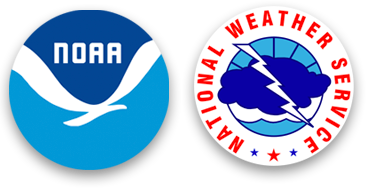Putting Computer and Technology Expertise to Work for the MAR
Editor’s Note: In 2010, NOAA Office of Atmospheric Research Communications Director Barry Reichenbaugh recorded a series of oral histories with key researchers and others involved in the National Weather Service Modernization and Associated Restructuring, or MAR, during the 1980s and 90s. These oral histories have been republished on the Voices of NOAA website. Reichenbaugh retired in 2018; we are indebted to him for undertaking this important project.
While meteorologists make up a large percentage of those employed by the National Weather Service, the smooth operation of the agency relies heavily on experts from many different fields.
Enter Lou Boezi, a man experienced in computer technology and development who, after working with NASA, FEMA, and other prominent organizations, came to work with the National Weather Service in 1990. This moment in time was significant for the agency, as it was marked by massive transitions and overhauls known as the Modernization and Associated Restructuring of the National Weather Service. Working his way through a variety of different projects, including computerized Upper Air observations, the NOAA Weather Radio Project, and AFOS, Boezi ended up as the NWS Deputy Director during the Modernization era.
Here is an excerpt from his interview recorded in March 2011:
On the attitudes of National Weather Service staff during the transitions:
“The dedication of the staff was the strength, is the strength, of the Weather Service. It’s the local responsibility. It is the local sense of responsibility. This was a time when you saw an entire agency, from the lowest level to the highest level, intimately coupled in a task of joint interest.
“You know, we had organized national meetings of all the managers of the Weather Service. Never in history did we ever do that. We laid out these plans and we said, ‘This is what your responsibility and authority is going to be. And this is our obligation to you and your obligation to us. We do this for the good of the country.’ And this is for the benefit of the country. You know what you see locally and we had cost benefit studies done and all that kind of thing. So this was a smart thing to do for the taxpayers. There was a sense of pride and can-do and we can get this done, because they knew that these tools were helpful to them. And once that was the case, the demand-pull was just fantastic.”
Resources and Additional Reading
-
Full interview transcripts and audio recordings of Lou Boezi from May 2010 and March 2011 available here: https://voices.nmfs.noaa.gov/index.php/louis-j-boezi
